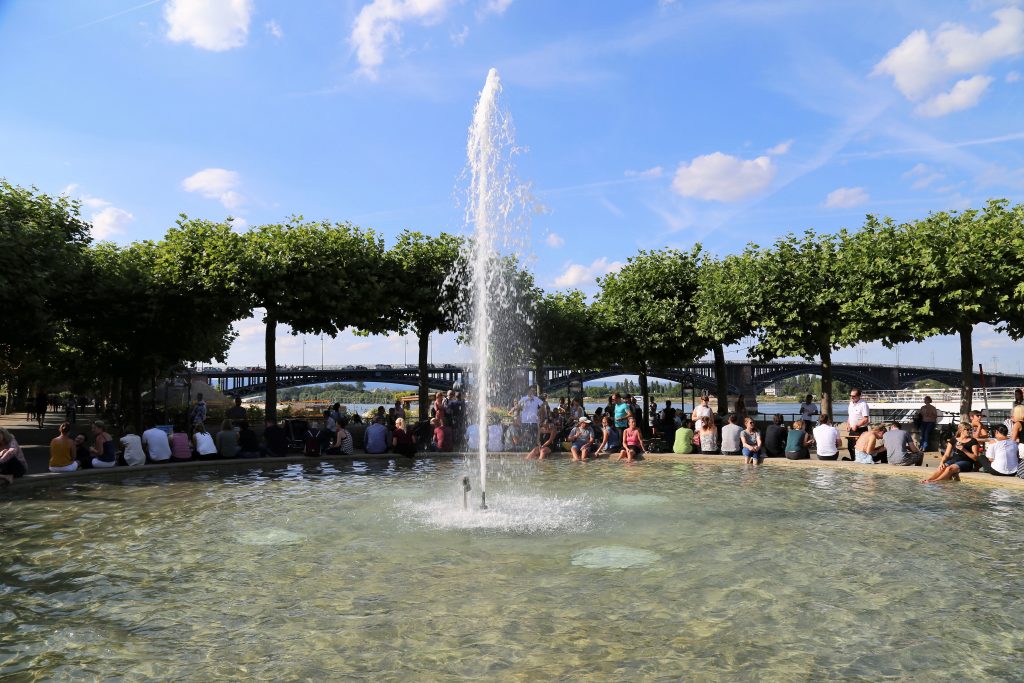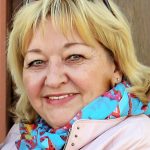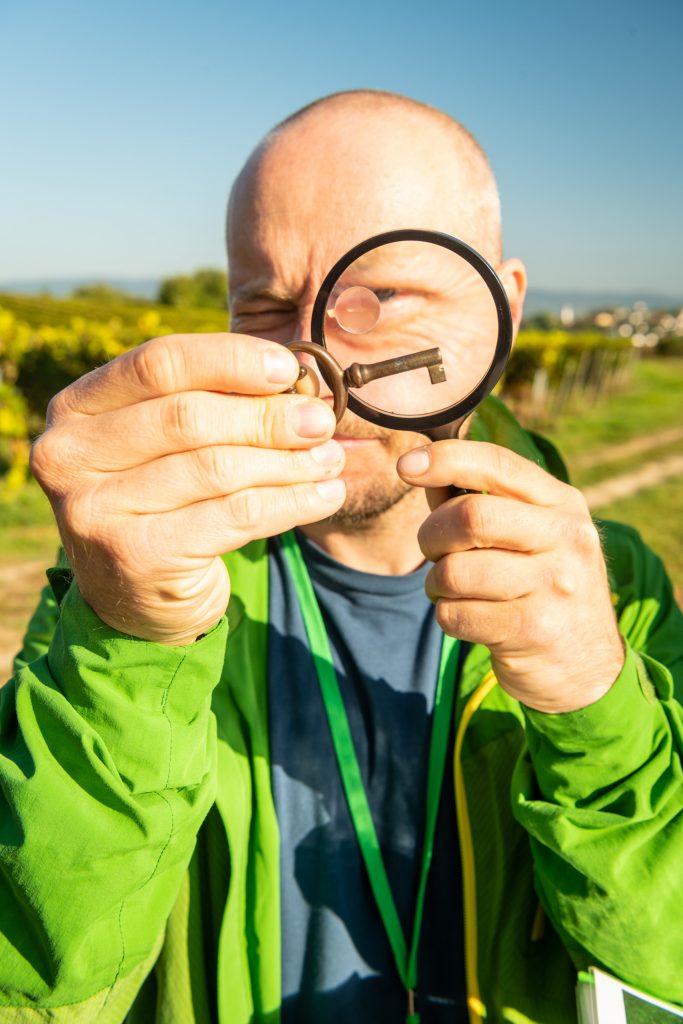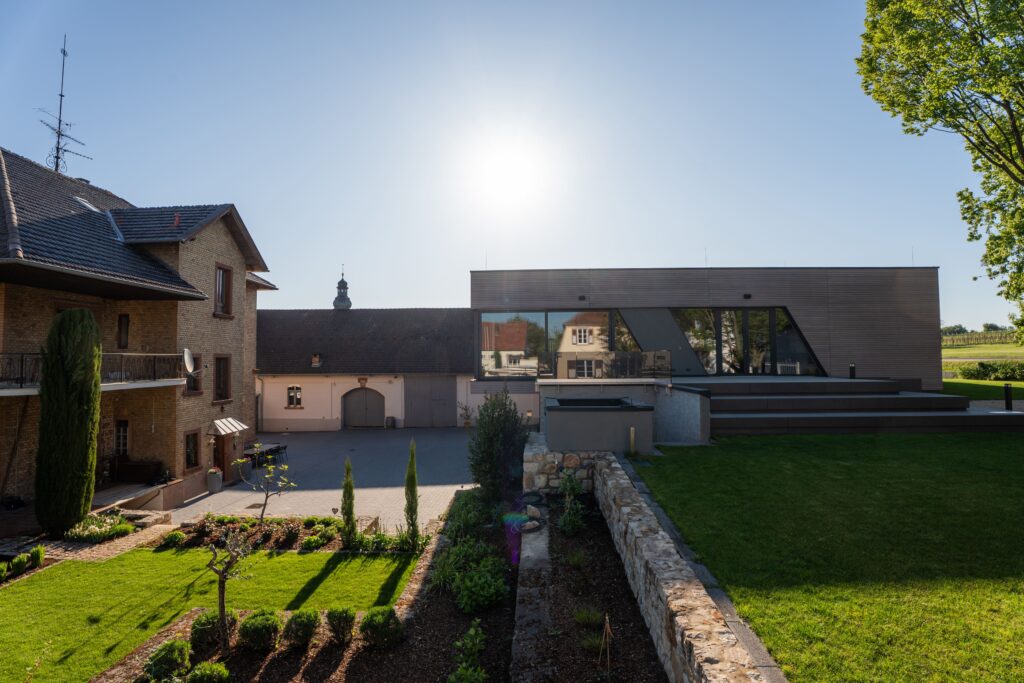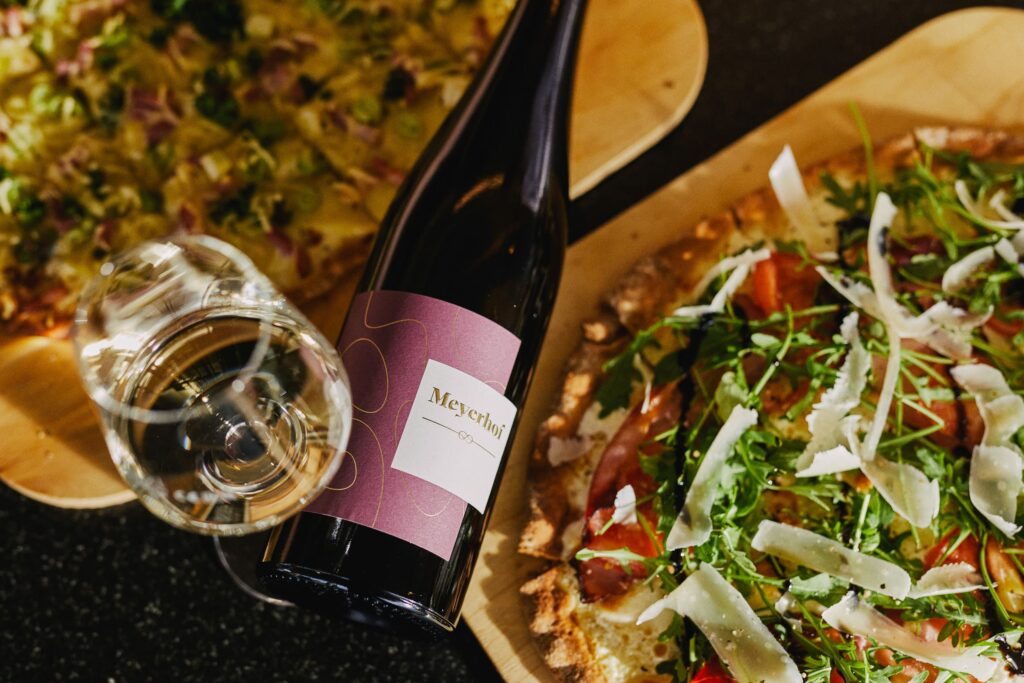The Mainz Wine Salon
Wine glasses clink, convivial live music and a buzz of voices fill the Rhine promenade between Mainzstrand and the bridge gate of the former city fortifications. The tables are quickly occupied and the seats on the wide rim of the Kurfürstenbrunnen with its large fountain are equally coveted. Every first Tuesday between April and September, young winemakers from Rheinhessen open their best wines on this square from 5 p.m. for the after-work party "Mainzer Weinsalon" - a meeting place for many Mainzers that also attracts the city's guests.
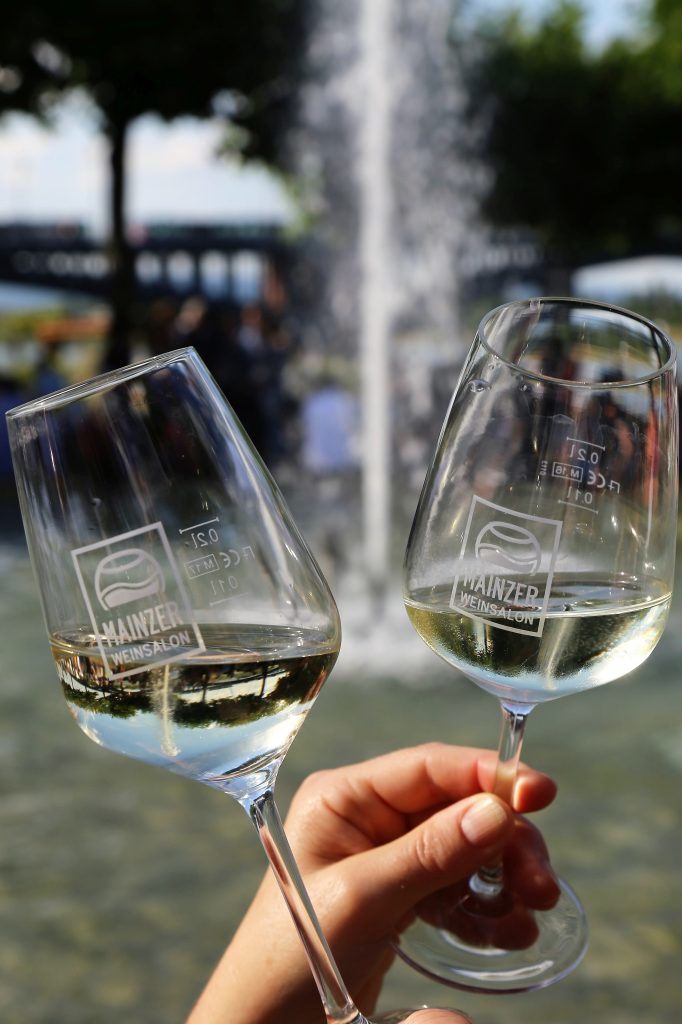
Between the cornerstones of the bridge gate, which was the official entrance to the city for 200 years, is emblazoned the Mainz Electoral Cycle. Depicted are the seven electors King Ludwig the Bavarian, the Archbishops of Mainz, Cologne and Trier, the King of Bohemia, the Count Palatine of the Rhine, the Duke of Saxony and the Margrave of Brandenburg. What is cast here in concrete, the Landesmuseum in the Große Bleiche guards in original tin. There, too, the young winemakers organize the "Wine Salon" in the courtyard every third Tuesday of the season.
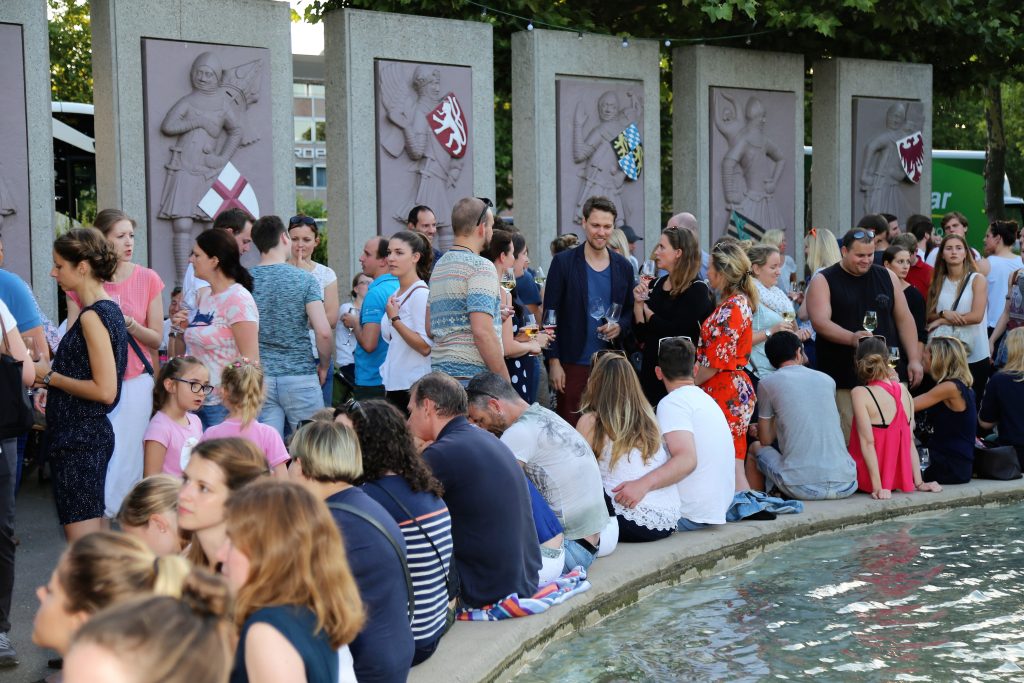
The electors already appreciated the noble drop as much as we do today, because the tradition of wine is as old as the history of the city. Today, Mainz and Rheinhessen - the capital of Rhineland-Palatinate and the largest wine-growing region in Germany - are members of the Great Wine Capitals Global Network and thus the exclusive German representation of the international network.
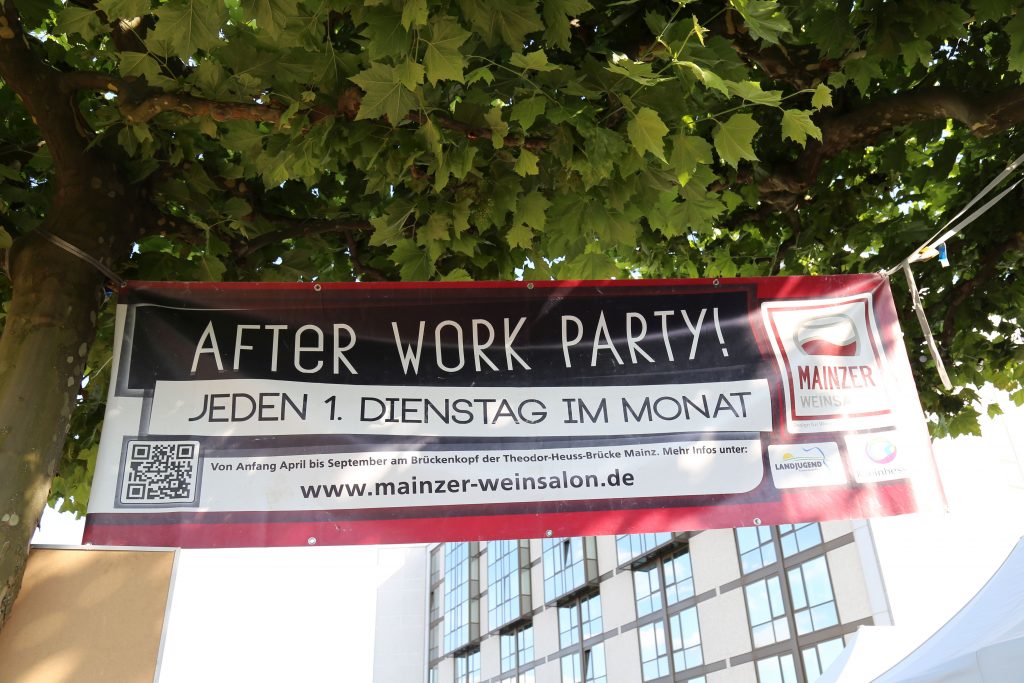
Young winemakers continue tradition
The young winemakers of Rheinhessen continue the tradition cultivated over generations on the wineries and combine it with their fresh ideas about wine. The Mainz Wine Salon unites young winemakers from 20 wineries in Rheinhessen. They do a lot together, exchange their ideas about wine and continue their education. Throughout the year, they appear together at many events and are proud of the many visitors to the After-work parties, with which they can help the Rhinehessen wine give him the stage he deserves.

One of them is Philipp Räder, viticultural technician, junior at the Bernhard Räder winery in Flomborn and board member of the "Mainzer Weinsalon". "Preserving tradition and opening up to the new is the motto of our winery, where three generations work hand in hand and are open to new ideas about wine," he says. One such idea is the ecological cultivation of the vineyards, which has led to all wines bearing the organic seal today. Philipp Räder is responsible for designing the wine lines at the winery and, in addition to developing classic grape varieties such as Müller-Thurgau, Riesling and Pinot Noir, he tries out new things. These include a fresh green Sauvignon Blanc and Chardonnay and Silvaner aged in wooden barrels.
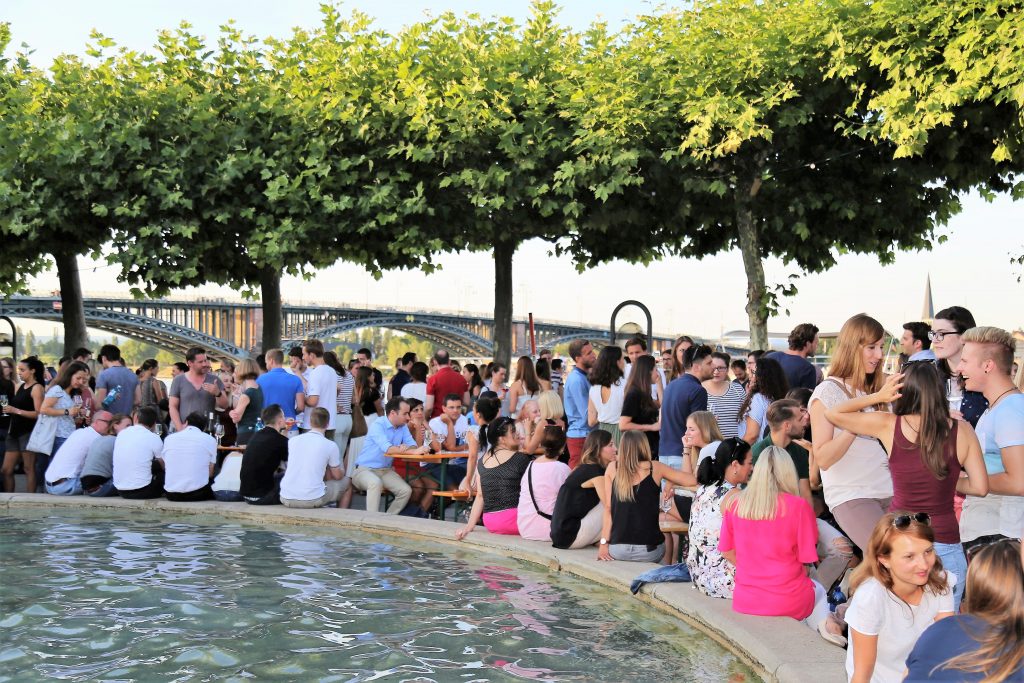
The subject of "wine" has long ceased to be the domain of men in Rheinhessen. One example of this is the young Katharina Faust from Siefersheim, who caused a sensation as wine princess of Rheinhessen in 2010 when she rode on an elephant over the vineyard site "Goldenes Horn". Her affinity for the pachyderms may have something to do with her assertiveness with which she has been able to win the "Vino Generation"was founded. This association of young winemakers organizes on eight Thursdays during the summer months the already legendary meeting place "Feieroomend" in the eight local communities of the municipality of Wöllstein with exquisite wines and Rhine-Hessian delicacies. The wine festival "Feieroomed" bears the seal of quality ".Rheinhessen Excellent".
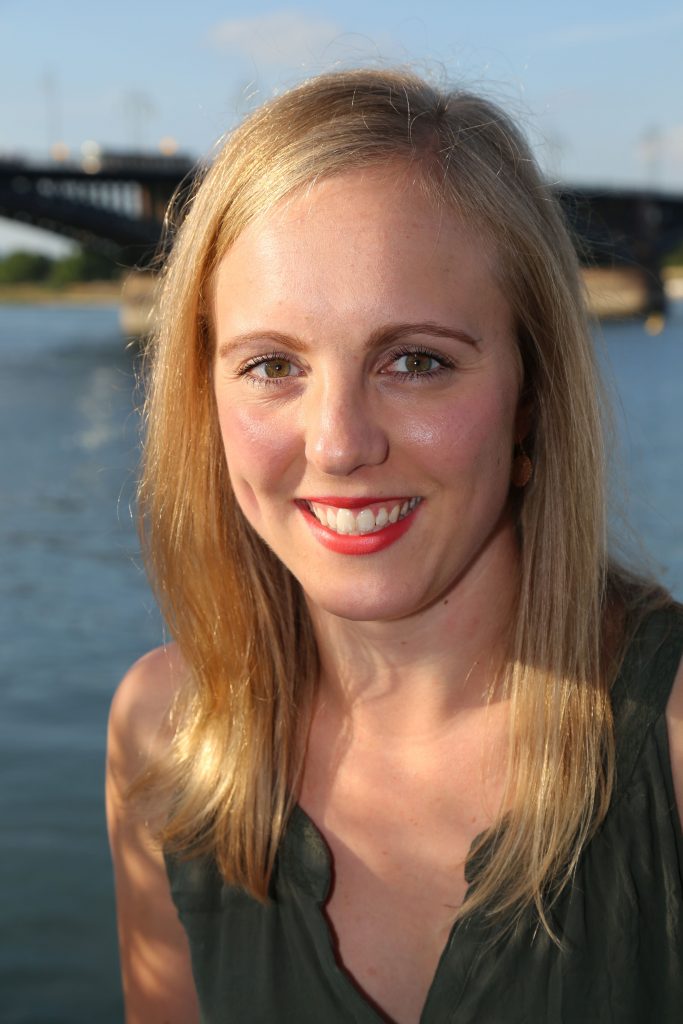
Alina Engel from the Meyerhof winery in Flonheim and 2nd chairwoman at the Mainzer Weinsalon, explains the event's success story: "At least seven wineries are involved in an after-work party. That way, we share the work. We also have fun talking to our customers, answering their questions and hearing their reactions. It's a good opportunity to pass on our enthusiasm for wine and Rheinhessen."
It's not natural for everyone who grows up on a vineyard to follow in their parents' footsteps. Alina's parents took her to the vineyards as a child, but when it came to choosing a career, she didn't initially see her future in Flonheim. She studied International Wine Economics, looked around New Zealand, and then changed her mind after all. She studied viticulture in Geisenheim and stayed at Meyerhof. The love for the vineyards of Rheinhessen is probably in her blood after all.
